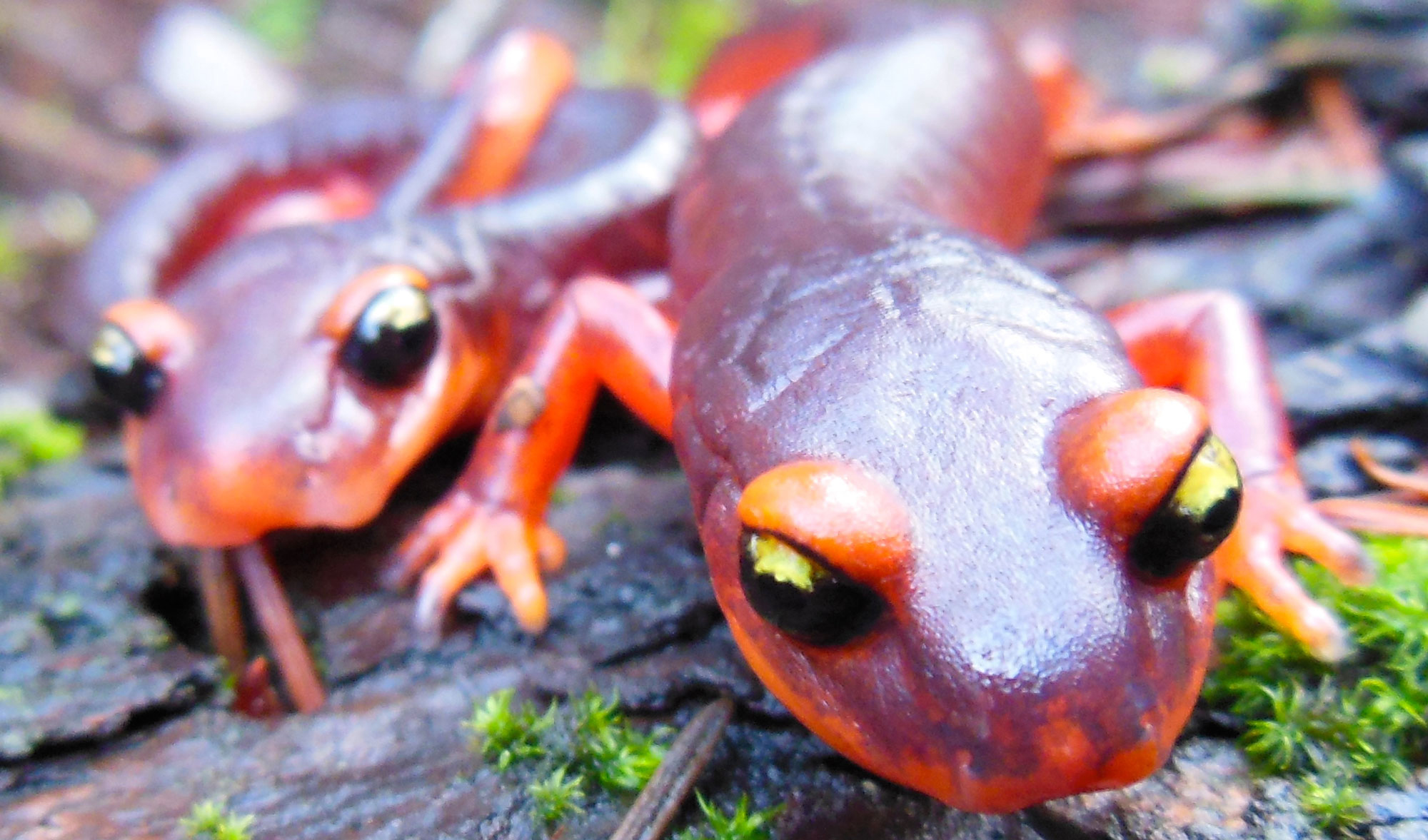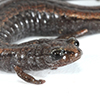Biologist's warning leads to federal action to protect salamanders

The Ensatina salamander (Ensatina eschscholtzii), a lungless salamander common along the west coast of the U.S., is one of hundreds of species of salamanders endemic to North America threatened by an emerging infectious pathogen. Credit: Tiffany Yap
Six months after a San Francisco State University biologist led a call for federal action to protect North American salamanders from a deadly disease, the U.S. federal government has announced a ban on importing 201 salamander species.
The ban, aimed at preventing the spread of the deadly fungus Batrachochytrium salamandrivorans (Bsal), was announced last week by the U.S. Fish and Wildlife Service and is effective today.
"This is a science success story," Vredenburg said. "This time we are doing something to prevent a catastrophe instead of waiting until it happens and then documenting it after the fact."
Vredenburg and his fellow researchers called for a ban in August, when, in a paper published in the journal Science, they warned that North American salamanders were at risk of mass die-offs and extinction unless importations were stopped immediately. Bsal caused a 96 percent fatality rate in infected species in Europe, where it was introduced from Asia through the pet trade.
It's a dire scenario all too familiar to Vredenburg. For more than a decade, he has studied the repercussions of a similar deadly fungus called Batrachochytrium dendrobatidis (Bd), where he witnessed thousands of dying frogs in California’s protected Sierra Nevada mountains. Around the world more than 200 species of amphibians have gone extinct or are near extinction as a result of Bd outbreaks, making it the most devastating infectious wildlife disease recorded.
Vredenburg is the co-founder of AmphibiaWeb, an online database of information on amphibian biology that receives 7.6 million queries each year. The familiar California slender salamanders, the Ensatina salamanders and California newts are found throughout Northern California and are some of the groups most threatened by Bsal infection.
"While the federal government's decision is an important step, our work is not over," Vredenburg said. "As researchers, we must continue our efforts to understand the causes and spread of deadly diseases like Bsal so that we can be better able to conserve these critical species."


